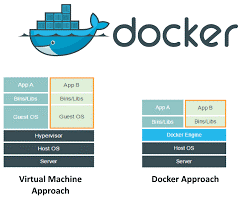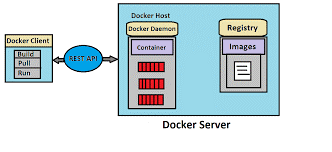Introduction
Docker servers are web servers that are used to run web applications in containers. A container is a unit of software that includes everything needed to run an application: the code, libraries, configuration files, and dependencies. Containers are isolated from each other and can be deployed on any server.
Docker servers have many benefits over traditional web servers. They are more portable, efficient, and easier to scale. And because they are isolated, they are more secure.
Docker servers are a great choice for web applications that need to be portable and scalable. And because they are easy to use, they can be a good choice for development and test environments.
Structure & Components of Docker Server:
Docker servers are web servers that run on the Docker platform. They are designed to be lightweight and efficient and can be used to run a variety of web applications.
Docker servers typically consist of a web server:
- A database server, and
- A caching server.
Docker servers can be used to run a variety of web applications, including e-commerce, content management, and blog platforms. They are also often used as development environments for new web applications.
Docker servers are typically deployed on Linux-based operating systems but can also be run on Windows and macOS.
When choosing a web server for your Docker application, it is important to consider the specific needs of your application. For example, if you are running a PHP-based application, you will need to choose a web server that supports PHP. Likewise, if you are running a Java-based application, you will need to choose a web server that supports Java.
The most popular web servers for Docker are Apache HTTP Server, NGINX, and Microsoft IIS.

Features of Docker Server:
Docker web servers are web servers that have been containerized using the Docker platform. This enables them to be easily deployed and managed using the Docker tools and ecosystem. Docker web servers can offer a number of advantages over traditional web servers, including:
- Easy deployment and management: Docker web servers can be quickly and easily deployed using the Docker platform. This makes it easy to get started with Docker web servers and also simplifies management tasks such as scaling and updates.
- Reduced overhead: Because Docker web servers are containerized, they have lower resource requirements than traditional web servers. This can lead to reduced costs and improved performance.
- Increased security: By isolating web server containers from each other and the host operating system, Docker web servers can offer increased security. This can help to prevent issues such as web server vulnerabilities from impacting the entire system.
Docker web servers are a great choice for those looking for an easy-to-use and managed web server solution that offers improved security and performance.
Uses of Docker Server:
Docker servers are web servers that allow you to package your applications and dependencies into a virtual container. By using containers, you can ensure that your applications will always run the same, regardless of the environment in which they are deployed. Containers also make it easy to share your applications with others, making them ideal for collaborative development and testing.
If you are looking for a web server that is easy to use and can be deployed in any environment, then a docker server is the right choice for you.

Conclusion
This is a web server that can be used to host websites. It is easy to use and has many features that make it a great choice for web hosting. Docker servers are also very scalable, so they can be used to host large websites.
FAQ’S:
1. What is a Docker server?
It is a web server that uses Docker container technology to provide an isolated and secure environment for web applications.
- How does a Docker server work?
It works by using the Linux kernel’s built-in support for containers to create isolated environments for web applications. Each web application running in a Docker container is isolated from the others and can only access the resources that are allocated to it.
- What are the benefits of using a Docker server?
Docker servers offer a number of benefits, including increased security, performance, and stability. By running web applications in isolated environments, Docker servers can help to prevent one application from impacting the others. Additionally, because each web application is given its own resources, Docker servers can help to improve performance and stability.
- Are there any disadvantages to using a Docker server?
There are some potential disadvantages to using a Docker server, such as increased complexity and decreased flexibility. Docker servers can be more complex to set up and manage than traditional web servers, and they may not offer the same level of flexibility. Additionally, because each web application is isolated from the others, it can be more difficult to share data between applications.
- How do I get started with using a Docker server?
If you’re interested in using a Docker server, there are a few things you’ll need to do. First, you’ll need to install the Docker software on your server. Once Docker is installed, you’ll then need to create a new web application and configure it to run in a Docker container. Finally, you’ll need to deploy your web application to your Docker server.